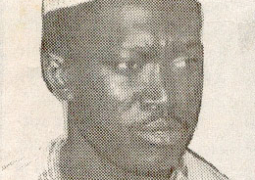We are celebrating the coming of our Saviour among us as a man. Why did we need a Saviour, what is the essence of his coming among us in the way he did and how are we expected to receive him? The following sections of the word of God help us to meditate on these, among other essential questions: The prophecy of Isaiah 9:2-7, Psalm 96, the letter of St. Paul to Titus 2:11-14 and the Gospel of St. Luke 2:1-4.
The message of Isaiah started on a very positive and assuring note. Listen: “The people that walked in darkness have seen a great light, on those who live in a land of deep shadow, a light has shown. You have made their gladness greater, you have made their joy increase, they rejoice in your presence as men rejoice at harvest time, as men are happy when they are dividing spoils” (Isaiah 9:1-2). Yes, that humanity and the whole of creation has been living in darkness until the coming of Christ as man is a truth that is attested to, both by Gospel and by history. It is because humanity walked in the darkness of sin and ignorance that it became clear that light and liberation are needed along the line. In the ancient world, people lived in fear of the evil spirits, spirits of the dead, principalities and powers and innumerable forces of darkness, which in line with their belief, were holding their lives to a ransom. In the Gospel, we saw Christ coming across people who were possessed by many kinds of evil spirits, the one that make them blind, the one that makes them dumb, the one that cripples them, the one that makes them become violent and a public nuisance, the one that make them ostracized from the society. The cases recorded in the Gospel, were just a few among countless evidences of the pre-Christian would living under the domination of the forces of darkness from which they couldn’t liberate themselves.
During the era of sin which was characterized by violence, man was a wolf to his fellow man. The strong ones shed innocent blood in as much as that helped them to achieve any temporal goal. The society was fairly lawless, and people did what they deemed fit for their immediate survival. Human life was not seen as different from animal life and this was proved by the instinctive way that people responded to life, just like animals and in their barbaric attitude towards one another. Women, children and slaves were considered as household properties and treated as such. Princes and races were at each other’s throat and hunt for each other as people hunted for dangerous wild animals when they become a threat to the lives of people in a given community. Life was indeed, like a heavy yoke weighing on the living. It was within the above context that God in the fullness of times deemed it necessary to send a Saviour. It was at a time when a mighty Caesar sitting in his throne issued a decree for the convenience of his own sovereignty, the practical implementation of which caused inconvenience to countless common people. It was at a time when the rich and affluent enjoyed their privileged night slumber, and the poor shepherds kept vigil in the cold night, looking after their masters’ sheep. Suddenly, the long desired day of liberation dawned on humanity. What was it? It was what the prophet Isaiah prophesied long ago: “For there is a child born for us, a son given to us dominion is laid on his shoulders; and this is the name that they give him: wonderful counselor, Mighty God, eternal Father, Prince of Peace” (Isaiah 9:5).
The context and manner within which Christ was born and those who witnessed the event of his mission was a demonstration that his coming was meant for the very heart of the suffering and groaning mankind. He was born to a poor couple who after obediently abiding by the decree of the emperor, ended up not even having a place to lay their heads from the cold and darkness of the night, despite the fatigue of their journey and the fact that the woman was at the point of delivery.
For this reason, they had to end up in the animals shelter, and behold the Son of God experienced his first moment on earth in such a dehumanizing and wretched situation. With the prophecy already made to the parents and with the miracle surrounding the conception and nature of the child quite evident to the two in their own physical plight, what greater fulfillment could the following prophecy of Isaiah have had: “The people that walked in darkness have seen a great light” (Isaiah (:1). For the poor shepherds, it was also their condition of service as those at the bottom of the society who have to keep a night vigil in order to earn their daily bread that resulted in their being the first and only people apart from Mary and Joseph to receive directly from God, the news and joy of the Saviour’s birth.
With the birth of Christ, we have the revealing of God’s grace and the dawning of the age of salvation. The Son of God and Saviour of the world coming to us in such a humble way demands that we make a real effort to accept him and to renounce everything contrary to his light. The first recipients of Christmas peace and joy were those who were faithfully and obediently living their lives, doing their duties and humbly and sincerely disposed towards God and their immediate authorities. This, we still have the opportunity of doing today and all the blessings of his love and presence will be for us, for as the prophet remarked, “from this time onwards and forever, the jealous love of the Lord of host will do it for us” (Isaiah 9:7B).



